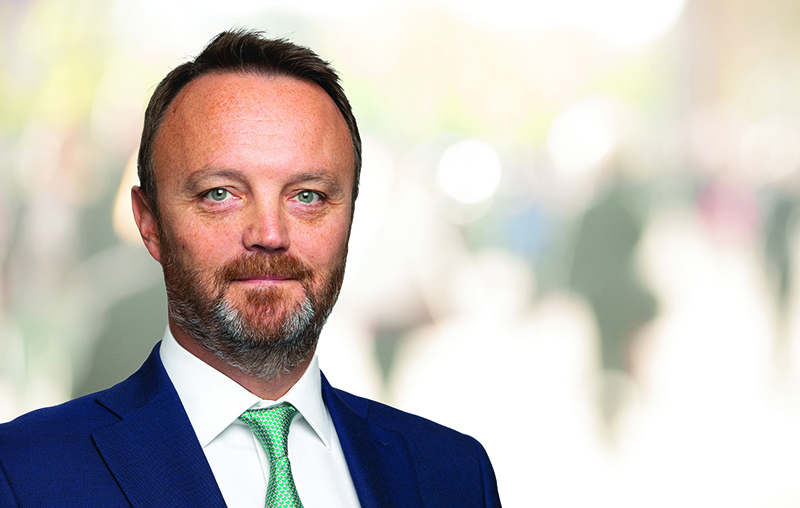We often hear how much markets hate uncertainty. They’re not alone. As human beings, we have an innate fear of the unknown. Neuroscientists far more knowledgeable on this subject than me, talk about how the brain craves certainty in the same manner we crave food, water, sex and other primary rewards.
If it is denied such certainty, red flags are sent to the limbic system, responding as it would if a genuine threat to life were occurring, writes Atlantic House Investments’ CEO Tony Stenning (pictured).
A University College London study a few years ago revealed that we’d prefer to definitely receive an electric shock immediately than know we might possibly receive one in future – the latter is more stressful, even though the risk carrying certainty may have a more negative outcome.
When we don’t have all the requisite information to make decisions, we are unsettled and distracted, trying to fill in the blanks. Imagine applying that logic to your lifetime savings and retirement planning?
Clients know what their dreams and aspirations look like, and possibly have a vague idea of how much they might need to fund them. Their advisers might even introduce best and worst-case scenarios into their cashflow projections. Yet when it comes to the investment funds commonly used to populate these plans, to make these dreams and aspirations happen, so many of them are designed from entirely the wrong perspective – leaving the returns they can produce down to sheer hope.
While it’s nice to be optimistic, when it comes to financial planning being realistic is far more useful.
Therefore, building funds with a defined return in mind, and using a rules-based process with contracts that stipulate it should – in all but the very worst market scenarios – deliver that return, might be a more sensible core holding to a client portfolio than strategies that aim to beat an arbitrary benchmark – whether that benchmark is rising, falling or just standing still.
Market demand suggests investors agree. The Investment Association’s 2021 Investment Management Survey noted that in 2020, 42% of net sales were to outcome and allocation funds. This isn’t a whim, sales to outcome-focused and allocation funds have been positive for the past 15 years.
Investor mindsets have been forced into shifting over the past decade or so. Their defined benefit pension fund may have collapsed with the financial crisis (if they were lucky enough to have one), with-profits and endowments have been reinvented to shirk off their tainted reputations and annuity rates tanked. Where comfort was once coveted, shiny marketing campaigns, star managers and emerging investment themes took over.
Advisers are once again seeking outcome-oriented solutions that will more likely meet their clients’ goals over a 20- or 30-year retirement than those that merely allow a peer group to compare itself more easily. Rarely does a client say, ‘to meet my aspirations I need a fund that will beat the FTSE index over time’, yet many popular funds are designed around doing just that; targeting relative returns and seeking to outperform some arbitrary benchmark.
There is, however, another way. Using derivatives can introduce a level of predictability into a world characterised by socioeconomic chaos, unpredictable central bank policy and persistent volatility.
Before everyone runs for the hills, we know derivatives, when used incorrectly, can be damaging. Twenty years ago, Warren Buffett called them “financial weapons of mass destruction” and we know when Buffett speaks, people listen. But we’d also argue that using any financial instrument incorrectly can be damaging.
Simple derivative contracts are often very transparent and highly liquid but like with any other financial instrument – you need to fully understand what could go wrong. Using managers that have the experience, dedicated resources and expertise to assess those risks fully and continuously should alleviate these concerns. It’s worth remembering that derivatives are used frequently and successfully by institutional investors globally to manage risks, diversify portfolios or in an aim to enhance returns. Many investors miss out on these opportunities by labelling all derivatives as scary.
Even if developed market equities typically (but not always) deliver 7%-8% over the long term, we are mindful that to reap those returns wholly and consistently would require being invested for the duration of the good years and ensuring your fund manager continually picked the right stocks at the right times.
By using derivatives, we don’t need to leave things to chance; rather we can say with confidence that, ‘If the market does X, you will get Y’. We can reshape the equity risk premium to make it far more probable that we can deliver a 7%-8% annualised return over the long term in most flat, rising or falling market scenarios. We never need to worry about an investment manager getting out of bed on the wrong side one particular day, or markets rotating such that their investment style or theme is suddenly out of favour.
All those unknowns are taken out of the equation. For example, the Atlantic House Defined Returns Fund takes chance out of the equation, instead relying on mathematical probabilities and robust risk modelling. Both our risk budgets and target returns are predefined, we can therefore model the predicted returns of the Atlantic House Defined Returns fund over time and in different market scenarios and make those estimates available to investors on an ongoing basis.
The rub with these types of strategy for some investors is that they won’t keep pace with rapidly rising markets. Yet they want the downside protection. We’d argue it’s not possible to have it both ways but by giving up some of that potentially unlimited upside we believe we can deliver a more predictable, fully transparent outcome and defined long-term investment outcome that will help you extend a reassuring hand to clients.
This article was written for Portfolio Adviser by Tony Stenning, chief executive of Atlantic House Investments.










